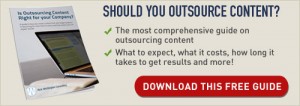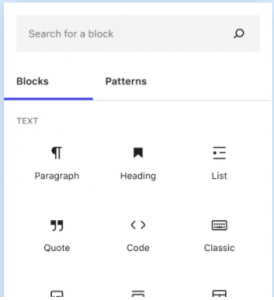— February 22, 2018

slightly_different / Pixabay
Gone are the days when a top-notch resume alone will be enough for a recruiter or a hiring manager find and vet you – let alone reach out. Why? As a resume specialist, I know that without “social” proof that you are who you say you are, and can do what you claim can you, alarm bells will likely go off. In other words, if you have little to no online presence, you may well be invisible.
According to a 2015 AdWeek article, 92% of all recruiters will identify candidates via social media. Additionally, CareerBuilder’s 2016 annual social media recruitment survey indicated 60% of employers use social networking sites to research job candidates,
Start by googling your name. If you don’t show up until page 3, or nothing about you reflects your career achievements, then you’ll need to work to distinguish to yourself.
The best place to start? LinkedIn.
What Makes Up a Wilting Profile?
While there are many things that will elevate your profile’s standing on LinkedIn, these 2 listed below are deal breakers:
#1 Unprofessional Headshot
A headshot that is blurry, clearly from years ago, or that leaves no doubt that the person next to you was cropped out, will not scream “professional.”
#2 Incomplete Profile
Skipping out on key sections will not serve you well, and will likely leave recruiters and hiring managers scratching their heads.
What Makes Up a Winning Profile?
Focusing on these 8 areas will ensure your profile is complete, and increase your chances of ranking at the top during searches.
#1 Professional Headshot
While professionally taken is ideal, if your budget or schedule doesn’t allow it, use photo editing software to take a picture where your face can be seen clearly on a mobile device or a larger screen.
#2 Customized Headline
By customizing the headline rather than letting it default to your current job title (be sure to uncheck the box!), you get to tell the reader about the types of roles for which you are well suited.
Expert Tip: I recommend reverting to titles on job postings – because recruiters and hiring managers who write job postings are likely to use these titles to look candidates up online.
#3 Conversational, Keyword-Rich Summary Section
The Summary section is your best opportunity to tell the reader how you are the perfect fit for a particular industry or role. By writing conversationally, you also give them an opportunity to “hear” your voice.
In addition to a few lines that tell the reader about the kinds of challenges you have solved in the past, be sure to include a list of hard skills or areas of expertise, as well as a way for readers to contact you.
#4 Synopsized Experience Section
Rather than just list the company name and role, I recommend using the experience section to share a few details – preferably quantifiable stats and figures, related to what you’ve accomplished.
#5 Volunteer Experience
Show readers you are committed to worthy causes – and help to make sure your resume received LinkedIn’s coveted “All Star” status, by sharing volunteer details.
#6 Extras
Convey the notion of “expert” or “highly accomplished” by completing the Certifications, Trainings, Publications and Awards section with applicable information
#7 Activity
Activity shared with your connections or within LinkedIn’s groups (I recommend joining 2 or 3 and becoming active!) is a great way to establish your credibility and/or cement your reputation as an expert or thought leader.
Activity can range from liking and sharing articles, to commenting on and even writing your own content and sharing on LinkedIn’s free publishing platform, and can also serve to establish credibility regarding your status as a subject matter expert.
Expert Tip: I recommend posting, sharing or liking an article at least 1X a day when actively job hunting, and 3x a week when not.
#8 Skills Endorsements and Recommendations
The words of others resonate loud and clear with readers – sometimes even more than your own! LinkedIn’s Recommendation sections allow your colleagues and connections the chance to weigh in and praise your work and talents.
Skills endorsements allow these same people to reaffirm specific industry and role-related expertise, and members with skills listed receive up to 17X more profile views than those who skip this section.
Expert Tip: Be sure to include the 3 skills most relevant to your targeted role or industry at the top.
Don’t Get Ghosted
Avoid being skipped over by being invisible! The stronger your online presence, and the more accurately it reflects your career achievements, the greater your chances of successfully being found and vetted by recruiters and hiring managers.
Business & Finance Articles on Business 2 Community
(48)
Report Post





